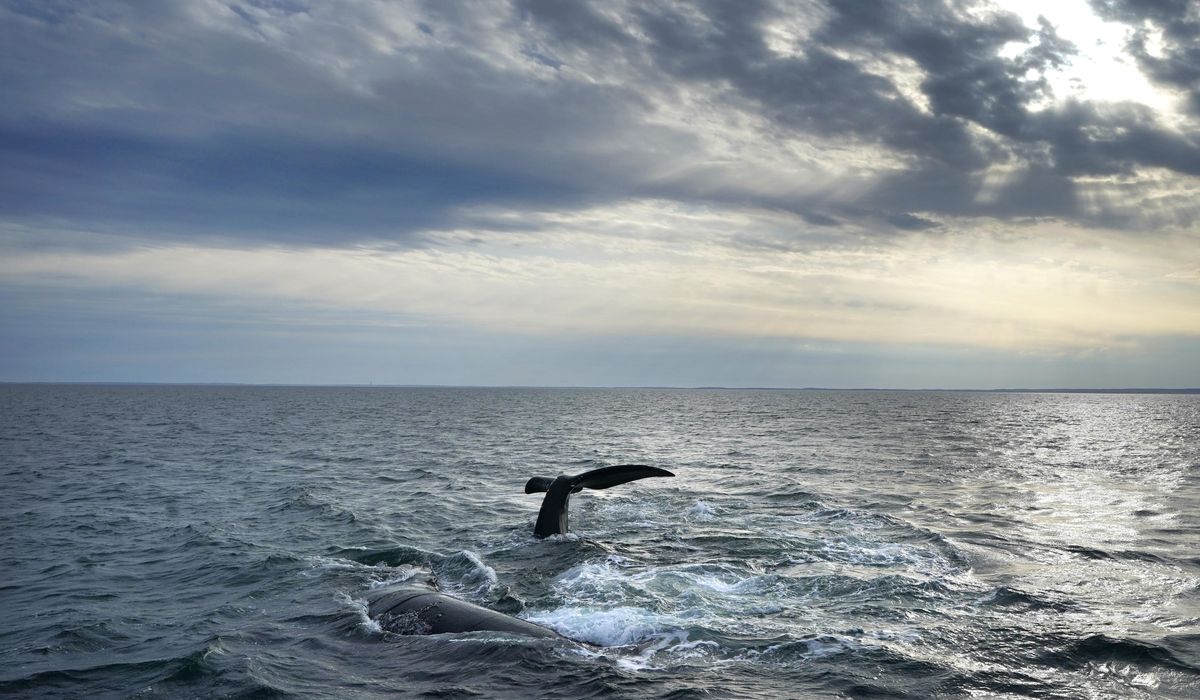


Scientists were thrilled to spot an endangered North Pacific right whale off the coast of Marin County last week.
Fewer than 40 of these whales are believed to exist, making this sighting one of the rarest in the world. Research ecologist Jan Roletto discovered the whale 3 miles west of Point Reyes National Seashore while she was aboard a vessel for Applied California Current Ecosystem Studies, the Santa Cruz Sentinel reported.
“It came up right in front of us,” then lingered for 20 minutes, said Ms. Roletto, research coordinator for the Greater Farallones and Cordell Bank National Marine Sanctuaries. Standing on the ship’s viewing platform, she and marine ecologist Kirsten Lindquist instantly recognized the whale.
“We both knew immediately what it was,” Ms. Roletto said. The identification was later confirmed by the National Oceanic and Atmospheric Administration’s Marine Mammal Lab in Seattle through photos and video.
The whale exhibited a V-shaped blow, was wide and pitch black, and had no dorsal fin. Notably, there was at least one cluster of rough, white skin patches on its head.
“It seemed to be resting,” Ms. Roletto added. “It wasn’t feeding or traveling. It would move a little bit, then sink down.”
North Pacific right whales were nearly driven to extinction by commercial whaling. Unlike other whale species such as humpbacks, grey whales and blue whales, right whales have been much slower to recover. They were favored by hunters because they swim slowly near shore and float after death. As many as 40,000 North Pacific right whales were slaughtered by the late 1800s.
In 1937, the International Agreement for the Regulation of Whaling banned the commercial hunting of right whales in the North Pacific, leading to a slight increase in their population. However, illegal Soviet whaling in the 1960s in the northern Gulf of Alaska and Bering Sea again pushed the species toward extinction.
Protected under the Endangered Species Act since 1973, right whales still face threats from human activities, including entanglement in fishing gear and marine debris, vessel strikes, oil and gas development, and ocean noise.
• Staff can be reached at 202-636-3000.
